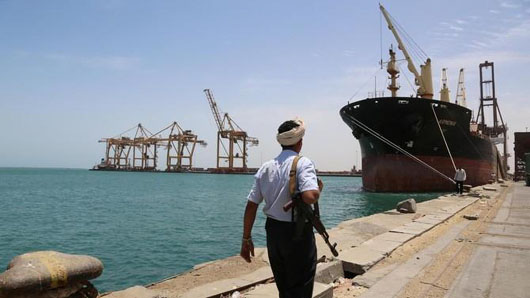by WorldTribune Staff, January 23, 2019
Fuel is being illegally shipped from Iranian ports to Yemen to support the Houthi rebels in their war against the Yemeni government, the United Nations said.

In an 85-page report to the UN Security Council on Jan. 18, a UN panel tasked with monitoring the Yemen conflict said it found that the fuel was loaded from Iranian ports under false documentation to avoid required UN inspections, and “the revenue from the sale of this fuel was used to finance” the Houthi war effort.
The panel also identified companies inside and outside Yemen who it said are operating as front companies using false documentation “to conceal a donation of fuel” to an unnamed individual on the UN sanctions blacklist.
Iran has repeatedly rejected allegations that it is providing military support to the Houthis.
The Houthis have also posed a threat to commercial vessels in the Red Sea and those delivering humanitarian aid to Yemen, the panel said.
In 2018, the panel said “the threat to commercial shipping increased as Houthi forces developed and deployed sophisticated weapons such as anti-ship cruise missiles and waterborne improvised explosive devices against commercial vessels in the Red Sea.”
The Iran-backed militants also attacked and damaged two Saudi oil tankers, each carrying 2 million barrels of crude oil, which “could have created an environmental disaster in the Red Sea,” the panel said.
The Houthis also targeted a vessel carrying wheat, which endangered the delivery of humanitarian aid and raised shipping costs to Yemen, the panel said.
In its report last year, the panel said Iran violated a UN arms embargo by directly or indirectly providing missiles and drones to the Houthis.
The panel painted a grim picture of a “deeply fractured” country sliding towards “humanitarian and economic catastrophe.”
In the report’s only upbeat note, the panel said talks in Sweden between the government and Houthis that led to an agreement in December on a cease-fire and withdrawal of rival forces from the key port of Hodeida “have raised hopes that a political process may quell the primary conflict in Yemen.”
The Arab coalition fighting in support of the legitimate Yemeni government, however, said that the Houthis had violated the December cease-fire agreement on several occasions.
Check Out Geostrategy-Direct __________ Jump Start the U.S. Media
